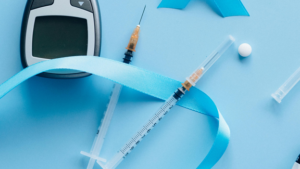Managing diabetes during Ramadan might seem daunting, but with the right plan, it’s entirely achievable. This holy month is a time of reflection and discipline, which can align beautifully with your health goals. To navigate fasting with diabetes effectively, consider these practical tips to maintain your well-being throughout the month.
Understanding the Impact of Fasting with Diabetes
Ramadan is a time when Muslims worldwide engage in fasting from dawn until sunset. This practice is deeply spiritual, promoting self-control and empathy. While fasting can be rewarding, it also brings physiological changes. When you fast, your body’s metabolism shifts. It relies first on stored glucose, and then on fat for energy.
For people with diabetes, these changes need careful attention. Fasting can lead to fluctuating blood sugar levels, causing both highs and lows. High blood sugar, or hyperglycemia, can make you feel tired and thirsty. Low blood sugar, or hypoglycemia, can cause shakiness or even fainting. These challenges highlight why managing diabetes in Ramadan is crucial.
Consult Your Healthcare Provider Before Ramadan
Before Ramadan starts, talk with your doctor or healthcare team. They can help assess your health and how fasting might impact you. This pre-Ramadan check-up is vital.
Together, you can create a personalized diabetes management plan for the month. This plan will consider your daily life, diet, medication, and any risks you might face. Planning ahead can make a big difference in your health during Ramadan.
Effective Blood Glucose Monitoring During Ramadan
Monitoring your blood glucose is crucial when fasting. During Ramadan, check your blood sugar more often. Important times include before dawn (Suhoor), midday, and before breaking the fast (Iftar).
Regular monitoring helps identify days when fasting is safe and days when it is not. If your blood sugar becomes too high or too low, it’s essential to stop fasting immediately. Keeping an eye on these levels is a key part of managing diabetes in Ramadan.
Crafting a Diabetes-Friendly Meal Plan
Eating the right foods is important when fasting. At Suhoor, aim for a balanced meal. Include whole grains, fruits, and proteins, which keep you full longer.
- Foods to include for Suhoor:
- Oatmeal or whole grain cereal
- Eggs or low-fat dairy
- Fresh fruit or a small glass of fruit juice
At Iftar, break your fast with healthy foods. Incorporate fruits and plenty of vegetables. Avoid fried or sugary items that can spike your blood sugar.
- Foods to avoid for Iftar:
- Sugary desserts
- Fried foods
- High-sugar beverages
When reintroducing food, do it gradually to prevent a sudden rise in blood sugar. Healthy snacks like nuts and yogurt can also be beneficial between Iftar and Suhoor. These strategies support your goal of effectively managing diabetes in Ramadan.
Incorporating Safe Physical Activity
Exercise is beneficial, but it’s important to be cautious during Ramadan. Opt for moderate activities like walking or yoga. Avoid intense workouts during fasting hours. After Iftar or before Suhoor are good times for physical activity.
Staying hydrated is crucial, so make sure to drink plenty of water during the night. This balance will help you keep active without compromising your health.
Managing Blood Sugar Extremes During Fasting
Recognizing the signs of blood sugar extremes is vital. With hyperglycemia, watch for symptoms such as excessive thirst or frequent urination. With hypoglycemia, look for shakiness or confusion.
If you notice any of these symptoms, take immediate action. Check your blood sugar and break your fast if necessary. These steps ensure you are managing diabetes in Ramadan safely.
Hydration: A Key Component During Non-Fasting Hours
Water intake is essential once fasting hours end. Drink plenty of fluids like water, herbal teas, or milk throughout the night.
Aim for at least eight glasses of water. Proper hydration helps keep your blood sugar levels stable and prevents dehydration.
Addressing Unique Needs: Special Considerations
Different individuals have unique needs. Pregnant women with diabetes should take extra care. Elderly individuals also need tailored plans. If you have diabetes-related complications, speak with your doctor.
Customize your diabetes management to fit these specific health needs during Ramadan. Ensuring personal care can make fasting much safer and healthier.
Being Prepared for Diabetes Emergencies
Create an emergency plan before Ramadan begins. This plan should include steps to take if your blood sugar becomes unstable.
Your emergency kit should include: – Glucose tablets or gel – A glucometer and testing strips – Contact information for healthcare providers
Being prepared helps you handle emergencies efficiently, ensuring safety while managing diabetes during Ramadan.
Balancing Religious and Health Needs
Balancing spirituality with health is possible during Ramadan. Prioritize your well-being while fulfilling religious duties.
Use coping strategies like setting realistic goals and taking one day at a time. By understanding your body’s limits, you can maintain both your spiritual and physical health.
Conclusion: Ensuring a Healthy Ramadan
In summary, thoughtful planning and communication with your healthcare provider are key. Monitor your blood sugar, plan balanced meals, and stay hydrated.
By following these strategies, you can prioritize your health while observing Ramadan. Successfully managing diabetes during Ramadan ensures a fulfilling and safe fasting experience.

